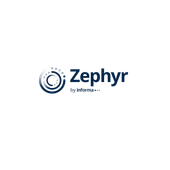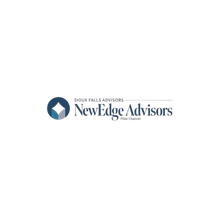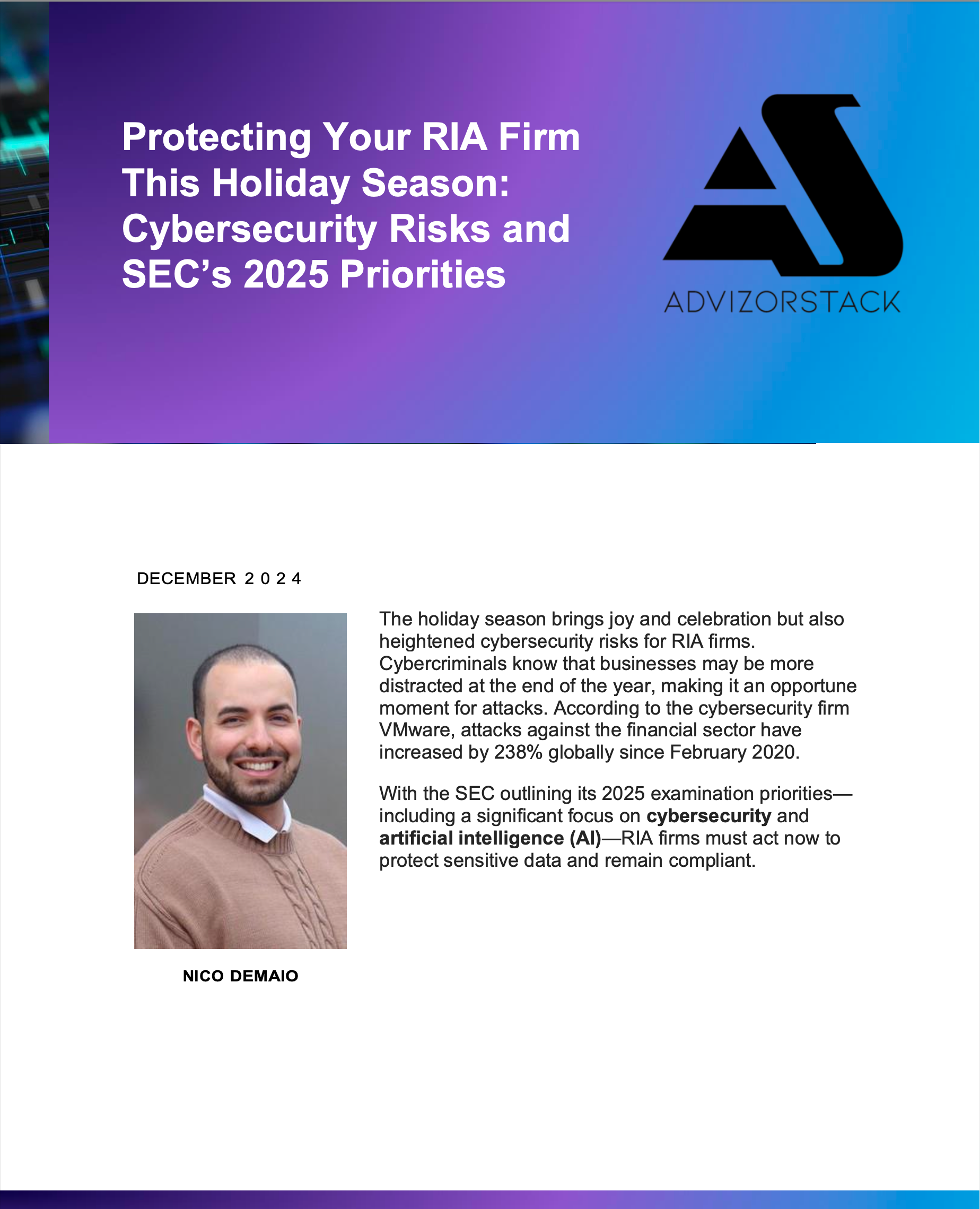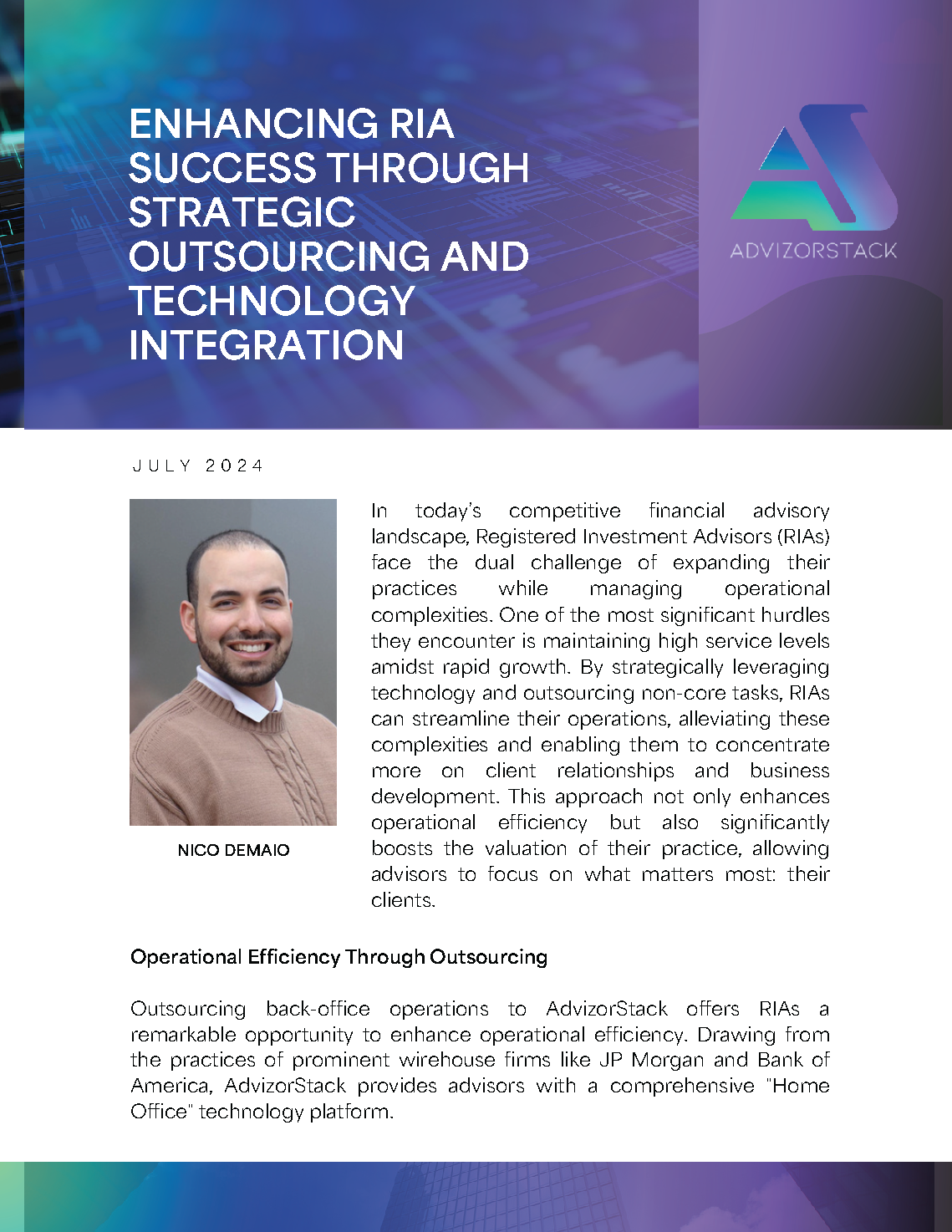By Nico DeMaio
•
March 31, 2025
Transcript Hello, and welcome to our webinar this week, this month actually. Rather than us doing a post about a weekly article, we decided it was best for us to have a normal conversation and actually have me and Paul talk about just the ongoing evolution of the technology in financial services. So, Paul, thanks for hopping on today, we're really excited to get this conversation going with you. If you would like to start, I would just like to kind of say if you want to do a quick 30-second introduction on yourself, we'll pass it to me, and then after that, we'll just kind of get right into some questions and answers. Sound good? Nah, I think this is really cool having a webinar with your son, by the way, so I'm glad you put this together, I'm glad you organized the company, I'm glad that we worked together on creating something really different, because in the 35 years that I've been in this business, I've seen drastic changes, as you can imagine. Think about it, when you were born, you were 30, you're 31 now, that's when all the changes started happening. So, 35 years in the business as a complex business development officer, a wholesaler for separate accounts, mutual funds, ETFs, you name it, technology sales, but I never ever built something like what we have built today, so that's kind of a quick background on my experience, tell us about yours. Yeah, no, taking it from there, too, I kind of took the other side of the path, obviously, where you pushed me to be more of the financial advisory side to start off my career at Schwab and TD Ameritrade, fell in love with technology there, obviously, in Silicon Valley, and then had the opportunity to go and build the technology experience at a large corporate RIA here in North Scottsdale. Ultimately, it all led up to the space has been craving more of a back service, a growth officer on top of a chief technology officer offering, and it was really exciting to be able to partner with you at the tail end of your career, mine's just obviously starting, you're kind of at the end of this now, but this is something that's going to be extremely beneficial for not only us, Tweed, me, and you, but to all the clients that we're looking to work with in the future, that's what I'm most excited about, so I appreciate you, and yeah, couldn't agree, but yeah, appreciate you giving me the direction and allowing us to do this together, it's extremely exciting. So, a couple of questions just when I wanted to get going on this, Paul, is why don't you take us back to the early days of your career? What was financial services like when I was born? I'm sure you were still barely sending emails and writing paper tickets, so why don't you talk about that a little bit? Yeah, that's exactly right, you can't be more correct than that statement. The technology back in the early 1990s, this is 1994 when I started with Merrill Lynch, that's dating me. I'd like to say I started when I was 10, but that would be a lie, so it's kind of aging me and dating me. But as you can imagine, 1994 at Merrill Lynch, two major, major things were happening: Not only the technology built out of email and trying to automate email and tickets and stuff like that, but it was also the time where Merrill Lynch came out with their consults program. A lot of people probably don't remember that, but changing the advisor's way of thinking from an advisor that was transaction-oriented, getting paid on every ticket they write, to being fee-based and using outside money managers was a huge, huge change in the industry. But let's talk about the technology side, not the investment side for a second. The technology side was crazy. I can remember, I think it was early 1994, no, no, I'm sorry, 1995 when email came to all of our desktops at Merrill Lynch. And if you can think about this, a bunch of guys my age at the time, we're in our 20s, thinking about we can now communicate with other people through our computers, that's incredible. How could that happen? We have to call them on the phone, what do you mean? Cell phones weren't even big at the time, so you're thinking about all these changes, and we're still using the tickets, the written tickets, through the bubble installer, so sending the ticket down to your compliance, have them send it to Merrill Lynch home office, have them send it to the trading desk, to try to execute a trade. So think about how long that took, to where we are right now. Settlement dates took a little bit longer than two for that reason, right, and noweverything click of a button blocks right in, and it's like all done. It's just crazy to hear that just even 30 years ago, it was archaic compared to that. I like to say our generation, my generation, and being a Gen Xer, saw the most change as far as everything: cell phones, technology. Think about trading that we were just talking about, Nico. You can make a trade right now on your Charles Schwab account in a half a second and have it executed, right? Think about what we had to go through back then. Think about how long it took us to communicate in email even. So now we have email. How do we get it to the other person? We had to download modems. We had to dial in using our telephone lines. So think about that. So you hear it, it goes beep, beep, beep, beep, like nine digits or 10 digits, whatever it was. And now all of a sudden you're connected to the modem and you had to make sure that you were connected when too many people were not connected or you would get bounced out or it would take forever to send one little message. So that's what it looked like back in 1994, 1995. And to where we are now, it's crazy. I can't even comprehend. I mean, you're used to it. You've been born with technology. Yeah, and it's interesting because what your period was talking about, email and just the foundation and molded into the social media fountain that we have today and how the internet is just so global. And then whenever I had the opportunity to kind of dive right into it, the time was 2016 when I was in Silicon Valley. And that was the rise of talking with the Cisco and IBM and my NVIDIA clients, the rise of APIs. And it's so interesting because that's only 10 years ago now, right? And then the philosophy of having these companies be able to access certain endpoints and then be able to take that information and read and write from various applications to that centralized platform was just started back in 2016. And now we fast forward 10 years, all it's the industry norm that their applications are API driven first where you can actually have a centralized operational platform to then be able to feed and write. So it's kind of the same thing where it was like, hey, here's the technology email basis and here's how it expanded. And it was the same thing with here's this API foundation of what companies are trying to make that replicate the iPhone in various industries. And then here's how we've been reaching that. And obviously AI is just expedited the entire thing. So it's really interesting to see that each and every decade theoretically has just insane velocity of technological improvements. And it's just each and every day speed up. So very cool to hear that. Yeah. That's why when you came to me with this idea, it was like a foreign language to me, you know? And over the past three years of adapting to it and learning it, it's the only way of the future for my generation and for your generation. So let's talk about some of the tech advancements then, Paul. You know, you've seen it all. You've obviously had companies that you've worked with that have been acquired like Folio. You've worked with Wisdom Tree, which had massive sales organizations and just everything there. But why don't we talk about some of the FinTech startup and how, just let's talk about the last 10 years, how they reshaped financial services and the offering. Well, that's so funny you said that because before I got into this with you, I didn't realize that there was such a divergence in the different technology companies out there until you and I went to the Salesforce Big Conference, right? So here we are at Salesforce National Conference and I'm walking through an amazement of all the components that can be under one umbrella. And I'm not talking just, you know, just the technology components. I'm talking about thousands and thousands and thousands of components, which basically are thousands of companies building whatever little widgets they need to participate in this advancement. It was mind-blowing to me. And to answer your question, to be able to integrate just the financial side, like we do at AdvisorStack, is an impossible task unless you know where to go, how to do it and what code to talk in. And that's something you taught me three years ago because I thought it'd be a lot easier. It's not. There's so many different types of languages and, you know, some of these platforms, like if you justtalk about normal fintech startups outside of the Salesforce arena, they're written in a whole different code. So then you have to take that code, match it into your unified data lake to be able to portray it. The communication of these companies and these startups and kind of how they, like you said, reshape financial services is they've been focused solely on solving a workflow gap and inefficiency problem. And now companies like us are looking at these firms and how do we absorb them to increase our value proposition. And again, everything that I've looked at and everything from advisor stack is, are they API first? And then what's the long-term benefit to us working with them rather than trying to solve these problems ourself. Speed and execution and simplicity and youth and we don't have to be reliable for all the resources. So, and I think you also said it too, the Kitsis map is just continuing to grow. There's like 700 companies on it now or something crazy like that at this point. Having a team that is fully dedicated to future-proofing your firm and making sure that you're always assessing the new technology that's out there, couldn't agree with you more, it's 100% must. It's gonna be a target. I've been working with advisors my whole career and I've helped onboard advisors, recruit advisors. I've seen what advisors go through when they move companies and for them to think that it's an easy feat, it's just beyond me because when they go into it, they go into it thinking, okay, I'm gonna transfer all my clients as fast as possible, right? And that's the goal for them and the custodian. The goal behind their continuing success and growth is their technology stack. And when they were working for the wire houses, the Merrill Lynch's, Morgan Stanley's of the world, they were given all that. They didn't have to think about that. They went out, they were rainmakers. That's all they had to worry about. When they go out on their own, and I mean true independence, they have to worry about everything, right? They have to worry about office space, their assistants, healthcare, anything like that. Clients. Clients, clients on top of that. They become a true business owner, a true entrepreneur. The last thing they should be worrying about is figuring out what technology they should be using. That has to be outsourced to a company like ours that understands which technology is out there, number one. Like you said, which one is API driven so they can talk to one another, number two. And more importantly, who can help you service it? Who can help you onboard it? You can go out and buy any type of technology, but guess what? All they do is they give it to you and they give you maybe 20 hours of client customer service work. And you have to go out and figure out how to use it. Our value add, our value prop is we bring the technology on and we service it for you. So if you have a problem with billing reporting, you're calling us. If you need help onboarding models onto your portfolio, you're calling us. That's the exciting thing. I think that that's the differentiator, should I say, that I think we bring to the table than other firms like ours. Totally agree with that. Trying to make that wire house feel, be available to the independent market. It's been my dream and that's how we're trying to make it become a reality. So service and continue to improve with technology is going to be the industry standard. And honestly, I feel like if you're not being able to accomplish both of them at a very high clip, you're going to be behind the eight ball compared to other financial advisors that are truly adopting it. So industry changing on that side, which takes me to my other point, AI and machine learning, because it's just a hot topic. Ooh, I never expected that to happen so fast. You always probably had the feeling. You always probably had the feeling of like, hey, why can't a computer tell me what I should be doing with my money or something like that? And you know what's crazy is we're getting there at this point where a computer is actually going to be, a computer can now analyze your portfolio or scan a statement for you and actually kick out other proposals or model enhancements that would be more applicable. So let's take that back. But how do you see AI in the human element of financial advisors kind of working together or do you see AI ultimately replacing it? Curious to get your thoughts. I don't think AI can replace anything fully. And when I say that, you look at doctors, for instance, a doctor is giving you a physical, right? A doctor feels what's wrong with you. But a doctor then goes into AI and puts your symptoms into it and says, what's the best possible way to treat this, right? AI gives him ideas. The doctor says yay or nay to the ideas. He implements it for that client. It's the same thing with financial advising. You have to be in front of a client. They have to feel trust within you,not just a computer. Now, there are some people that will go and just sign up for computer stuff and, you know, the Robin Hoods of the world and just trust that they're going to do it the right way. But what they'll find out the hard way is, you know, in a down market, it's a lot different. And I think what AI can do for advisors is keep them engaged with their clients on a regular basis. Tell them, hey, you talked about this last time. It's your birthday. They're 60 years old now. Give them this idea. Stuff like that. Keep them very engaged. And we have the tools to do that, which is very exciting for me because I never, ever saw anything like that. And I'm pretty excited about it. It can also give you some recommendations on stock, on a portfolio and what could look good for that particular client. But the ultimate goal is just like a doctor, the advisor has to come down and say, yeah, that's perfect for my client. No, I don't want that for my client. They might miss a piece of the human element that the computer is missing. It's the engagement fact that you're hitting on mainly. Yeah. And that's interesting too, because it's like what we're building with Josh Wilson, right? And like we're working on taking in all these life events and creating standardized templates. And now you even add the AI tools that are available there where we can record our whole call, come out with an intact summary and next best action. But it's even taken that one step further to give these advisors real-time insights. Oh, this client talked about this. Here's a perfect segue for you to talk about the market and how you protect their assets during a downturn. It's being able to leverage that combination and keeping 100% engaged with your clients, but using technology to scale that, right? Because back in the day, just even five, 10 years ago, you had to have everything task workflow oriented. Now those days are actually archaic to an extent where you can actually do the combination. So it's interesting to see. And you obviously saw the rise of robo advisors and now how companies are starting to shut them down because of the lack of success of that. Like, talk to me a little bit about that because people did think that robo advisors were going to be the first thing to ultimately replace financial advisors, but then, you know, there was passive investing and I know you've seen them since the start. Well, it all comes down to when you see some down market ticks, right? Everybody can be a superstar in an up market. If the market's booming, anything you touch turns to gold, right? And we saw a lot of that and we saw a lot of that in the, you know, late nineties with the tech boom. We saw that after the 2008 meltdown. We saw very good markets for a long time, however. And then passive indexing too from like 16 to 20, right? Exactly. It was cheap. It was easy. And guess what? You're still coming close to beating the S&P all the time. But when we saw down ticks on the market is when you saw people saying, oh my, I don't know if this robo advisor is going to work for this client or my client, or even me. I need some more professional help. And it comes down to not just your investment portfolio, but life decisions. What are you going to do with your estate? You know, what are you going to do with your house? What are you going to do with all the insurance that you have? And now what are you going to do with crypto, right? So you have all these different variables intact that a robo advisor just cannot handle. That's my opinion. That's kind of where the shortfall came into place, right? Because it was very sector-based investment philosophies, correct? Yeah. It was easy. And then it was easy. Because if you have an upward market, markets running 20% for four or five years, you could throw it into an SPY and I look like a genius. But then it's the sideway markets that you're saying that are going to ultimately add that human element into place on top of being able to work with an AI tool to ultimately give them the best returns, correct? And it's also the different asset classes that have come about. You've never seen a bigger input into alternative investments now. You see the high net worth people going into private equity funds, private credit funds, private everything. So for a robo advisor to touch all that, it's just not feasible. It's not feasible. That's an interesting thought. I mean, obviously, it was very advantageous to people my age who didn't have those types of net worth. But then obviously, we started to see that we were tailing the performance of the overall market. So I think everything caught up to exactly like you were saying. So you just talked about just these whole advancements and kind of the industry's normal. So let's put on our advisor's hair and our advisor's hat right now and say, you know,how has technology really changed the advisor's expectations? And what are advisors really looking forward? Really looking forward, and my generation, we can focus specifically on them, but what is the next evolution of what financial advisors are looking for to run their firm going forward? Yeah, that's a great question because what's happening now is it's the generation and transfer of wealth that's happening, not just from the baby boomers, but my generation too onto your generation and to the millennials. And so how many times have we met with advisors, the advisor is my age, and they're transferring their book to their son or daughter that's closer to your age? Got a couple of those clients under our book already, right? Yeah, it happens all the time. So when we talk to your age advisors, they are technology driven. Hey, what's the simplest, best way for me to run my business? Give me the best tech tools that I can help grow new clients, and more importantly, attract new advisors to come work for us. So I think that's what advisors are looking for now. More importantly, they want everything to talk to one another. They want everything to connect. And honestly, that's why you helped establish the advisor stack. You wanted to give advisors a reason or the ability to connect all the different technologies that they use underneath one technology stack. And I can't say this enough. My age advisors never thought of that. They're thinking about it now through their next generation of advisors. Yeah, it's like a, it was like a level up into how, the best way I could say this is, my generation of advisors is always looking for difference makers. We're disruptors. It's kind of just the industry's norm with us too. So whenever people give us a black and white process to follow, we actually see that as a problem because then it doesn't allow custom abilities, doesn't allow our own input in, and it doesn't allow me to create my own value proposition beyond just my white, beyond the walls that I'm given. So then being able to go independent, working with a firm like us, where we're constantly assessing these technologies, giving them more and more capabilities to win clients, to compete with the dynasties, just to tear at the large OSJs and give them the same type of philosophy. But one more thing that you talked about was the recruiting side. Because we're making something so different and something that's not just an industry or a standard for another corporate RIA, because I'm in the firm belief that no RIA runs the same, you need to be able to mold and to adjust to those current, like to your philosophies and your investment theories. And then ultimately the best way to do that is to work with a technology stack that can ultimately mold and deviate to your firm's needs, wants, and concerns. And that's the whole philosophy that I think we've really tried to push on, on top of everything else that we offer, is giving them that home office type of feel, but really make sure that they understand, hey, your firm is different than Paul's firm down the street. And we're gonna build it that way, and we're gonna make sure that you're set up that way so that you can recruit advisors that think just like you do. So it's an interesting philosophy there. So talking about the future, it's hard to say because each and every day, and there's new technology that's coming out right now, but let's take a look at the next five years. What emerging technologies do you think are gonna be the most significant impact? Do you think it is, truly speaking, the all-in-one experience that's deeply embedded with workflow efficiencies from various components? Or do you think that someone's gonna be making a new application that may be more geared towards specific advisors? Just curious to get your thoughts of where you see this going, actually. Yeah, I think advisors will dictate what's gonna be made out there. When you talk to a different advisor, they want something different all the time. I think AI will continue to have a major presence in our industry, obviously. And like you said before, our technology spend will never go away because it's always ongoing. So I've learned that the hard way, but it's exciting because every month or two months or three months, we find another tool that can help make our stack easier and better for an advisor. I mean, you look at the change that we made just on billing and reporting, and I won't name any companies, but the company that we use now is significantly better than the company we used before. And the reason behind that is because the company we have now invested in future technology. The company before just stayed stagnant and didn't invest dollars into the right areas of their billing and reportingmechanisms. So I think it's an ongoing change. And I think if you don't have an outsourced technology team like ours constantly looking for those changes; you're going to fall behind the eight ball because look at 2018— that stuff's antiquated already. We've run into large companies that have to decouple their stuff because it's too old, but they can't because they have so many clients on it. So it's ever-changing, and I think that's why if you stay nimble and small as a company and you adapt to changes quickly, you'll be better off. And you know, I think it's taken into the expectation about the different performance reporting company that we ultimately decide to utilize, but the biggest kicker is they were API driven first. So every single thing that they're focused on is how does my application fit into other unified experiences that may already be created to improve the advisor's workflows and ultimately create theirs. Like that is the industry norm, and people that are racing towards being able to partake in the iPhone for financial advisors as opposed to hard-coded in their platform and siloing in itself and thinking that they're going to be the solve for everything and everybody isn't going to work. And you know, that's kind of why I just want to be—why we at AdvisorSpec just want to be the front-end person for the industry. We want to improve those workflows, connect those dots, and give advisors such an easy, simple platform that they're very used to utilizing, just like at the wire house in their days. So couldn't agree more on that. Next question: what advice would you give the financial professionals or companies looking to stay ahead in the rapidly evolving tech landscape? Obviously, they can work with a company like us. There's a lot of conferences that are out there right now, but you know we have these large conversations with these OSJs—we won't name some of them—that are constantly re-evaluating their tech stack, and they already have 400 or 500 advisors underneath them. So how can a firm like that stay ahead of this curve and ultimately work with someone like us? The easiest solution is to avoid the noise. You know, avoid the noise. Don't get caught up in it. Let the professionals on the technology side do it for you. They spend millions and millions of dollars hiring people that don't understand their business, and they're just wasting money. By the time they get to figure out what they want to build, the technology has changed. So outsource it like you would anything else. You know, you're not going to go operate on someone just because you're a doctor of psychology, right? You're going to hire a surgeon. So it's the same thing on our side: like you may know a little bit about technology, but you don't know where to find it, what talks to one another, and how to make it. It's like that value—it's like that last and impact type of theory, right? I go and assess it. I go through a discovery. My discovery takes a year. One year down the road, that's already an antiquated technology, and there's a new discovery that needs to take place. Do you feel that companies sometimes handcuff themselves because they go through too much of a discovery and an expectation type of philosophy rather than actually looking at, "let's do this in a phased approach and try to get an initial value add in place and then continue to add into that?" You know, like we run into that all the time where I would like to say we're very nimble and we obviously kind of mold to that, but what's your theory on like a larger OSJ and their roadblocks with something like that? That's why I said avoid the noise because they get into situations where they start one way, they end up going another way, and then another way, then another way. So what they need to do is just keep it simple and remove themselves from the side that they really don't understand, and that's the technology. You can hire a bunch of people, bring them in, but guess what? If it doesn't work, you just wasted a lot of money and you wasted a lot of resources and a lot of time. So outsource, outsource, outsource. The only thing I can say to advisors or super OSJs. Couldn't agree with you more on that. Last thing, and I know that we've been talking mainly about technology and everything that we're doing, but I just want to put the ball back on to you. What's one technological shift you wish you would have predicted earlier or invested in earlier? Just curious since you've seen everything. I knew you were gonna bring that up because you like to keep reminding me of how you told me backin the heyday to invest in Facebook. When you were like 10 or 11 years old, I think it was. What year was that? I was a freshman in high school because we did in my economics class a stock portfolio. And it didn't perform well the year I bought it because if you remember that actually it dropped down a little bit. They had no revenue and that was everything that you were backing into. But I always said, oh, what do they do? They know everything. And you know, knowledge is power nowadays. I didn't fully understand it back in the day. I was too busy looking at earnings versus where this world was going. And the sociology, the social aspect of gathering data, being able to see what people want, people like, people click on. I mean, I never even dreamt about that back in the day. I don't think any of us did. And to buy Facebook back in when it was $20 a share, obviously, it would have been a huge home run. There's another one too, but that's my little mark on glory. I think I picked some losers too though, so I won't bring it up. Yeah, that's all right. I won't remind you. But yeah, no, Paul, thank you so much for hopping in on this. I'm always excited to kind of just talk about the evolution of this space and being able to get to do this with my father is just a blessing in disguise on top of it. It's stressful at times, but I wouldn't have it any other way to be honest with you. And just as a little reminder for everyone else listening on to this webinar, some additional services that AdvisorStack offers on top of technology, we also do: Legal and registration services Transition services Fractional outsource compliance and operational needs So as Paul said, if you're looking to outsource, if you're looking for an evaluation into your current firm and trying to future-proof them for the ongoing success of the succession plan for the younger advisor, I feel that we're in a really good spot and can definitely assist firms of any size, once in a dream, to be able to modernize them and become the firm of their future. So Paul, thanks a ton again for hopping on to this. And if you guys have any questions, please feel free to reach out to us directly. Thank you. Thanks. Talk soon. See you. Bye.






 Describe the item or answer the question so that site visitors who are interested get more information. You can emphasize this text with bullets, italics or bold, and add links.Button
Describe the item or answer the question so that site visitors who are interested get more information. You can emphasize this text with bullets, italics or bold, and add links.Button Describe the item or answer the question so that site visitors who are interested get more information. You can emphasize this text with bullets, italics or bold, and add links.Button
Describe the item or answer the question so that site visitors who are interested get more information. You can emphasize this text with bullets, italics or bold, and add links.Button Describe the item or answer the question so that site visitors who are interested get more information. You can emphasize this text with bullets, italics or bold, and add links.Button
Describe the item or answer the question so that site visitors who are interested get more information. You can emphasize this text with bullets, italics or bold, and add links.Button Describe the item or answer the question so that site visitors who are interested get more information. You can emphasize this text with bullets, italics or bold, and add links.Button
Describe the item or answer the question so that site visitors who are interested get more information. You can emphasize this text with bullets, italics or bold, and add links.Button Describe the item or answer the question so that site visitors who are interested get more information. You can emphasize this text with bullets, italics or bold, and add links.Button
Describe the item or answer the question so that site visitors who are interested get more information. You can emphasize this text with bullets, italics or bold, and add links.Button Describe the item or answer the question so that site visitors who are interested get more information. You can emphasize this text with bullets, italics or bold, and add links.Button
Describe the item or answer the question so that site visitors who are interested get more information. You can emphasize this text with bullets, italics or bold, and add links.Button










